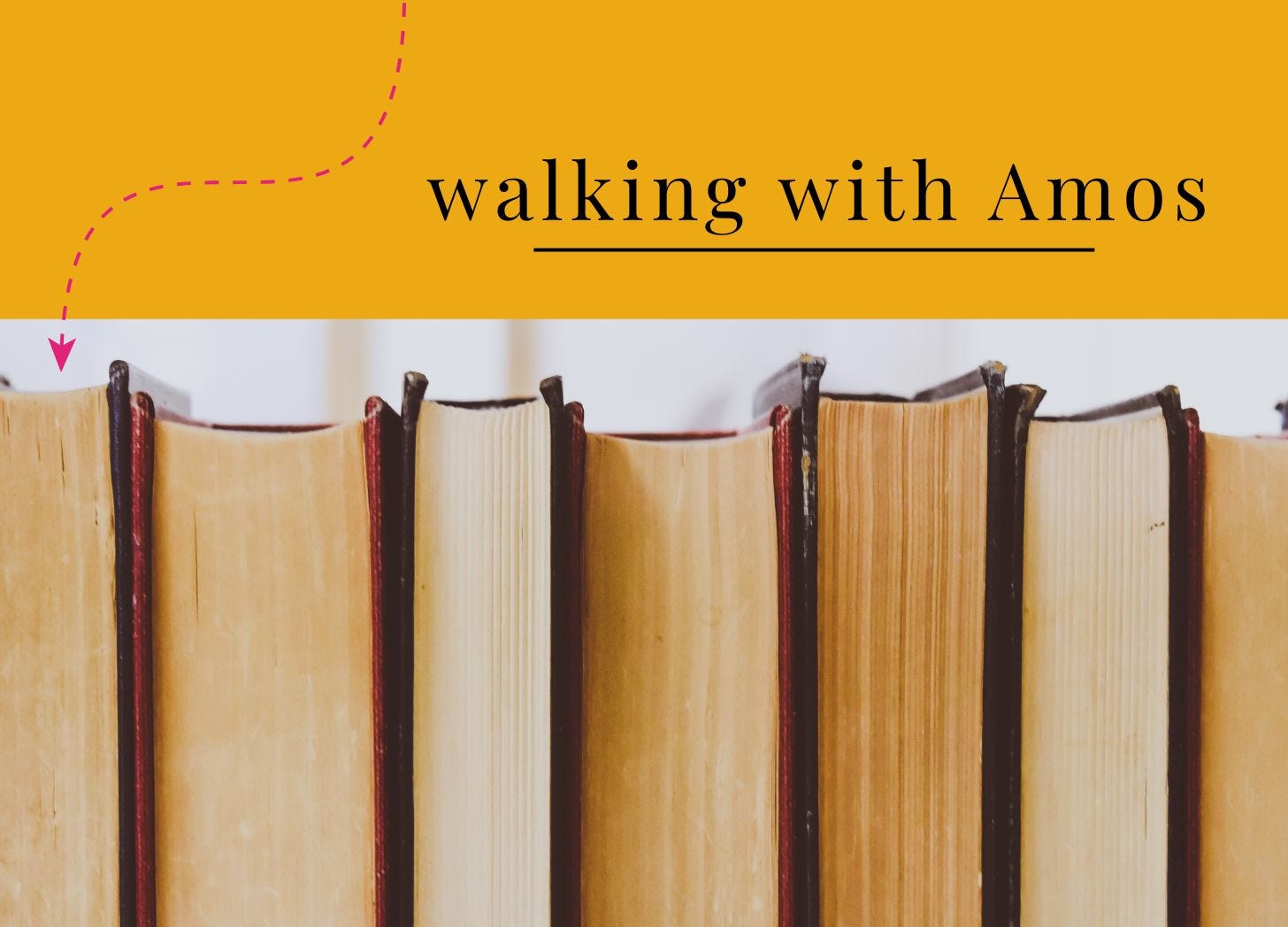Please make time to read Amos 1-3 before diving into the comments below. I do not walk step-by-step through the passage so you will need to read it on your own. In fact, I’d rather you read the actual text and didn’t have time to read this post than read the post and skip the Scripture. This week’s post will make the most sense if you read it alongside Amos 2.
Amos 2 finished up the Oracles to the Nations (see last week if that term confuses you), spends a few minutes condemning the southern kingdom of Judah, and then moves on to the real point of the book: the northern kingdom of Israel (here’s the introduction if you need a refresher on Judah and Israel!) They have turned from following God despite all that God has done for them. God has been patient but He can ignore their evil no longer.
The Words to Moab
This is another story of cruelty. Carroll insists that because this incident does not involve Judah or Israel, we see here that God’s moral vision extends over all of humanity and that everyone is accountable to some level of God’s law.1
The Words to Judah
Judah, on the other hand, is most accountable to God’s law because they are part of the people of God. They have been entrusted with God’s words and God’s presence. Nevertheless, Judah has rejected God’s instruction, which leads to life, and instead followed after lies, which will lead to death. In consequence, God will reject them and send judgement.
God responds to how we respond to Him. God always acts first, but we are given the freedom and the ability to respond. Humanity’s connection with God is a true relationship. God is not forcing their hand but offering His own. We can reject it. And Judah did. In response, God is going to withdraw His own hand.
Reflection
Often, we are tempted to judge people who do not follow Jesus for not following Jesus. We critique how they don’t follow God’s word or care about God’s standards. But God differentiates between the two. Yes, there are standards of decency that He cares about for all people. But for His own people, the standard is higher. How are we receiving God’s word? Where are we tempted to put things in the place of God? Spend a few moments considering why it’s easier to demand that others follow God instead of allowing God to search our own hearts? Where have we rejected the instruction of the Lord?
The Words to Israel
Now the prophet has moved into the condemnation of the northern kingdom of Israel. You’ll immediately notice that this list is much longer and that God reminds them of how He has cared for them and how they responded scornfully. If you want to see the fullness of the judgment that God is promising, note the poetry at the end of the chapter.
Escape will fail the swift,
the strong one will not maintain his strength,
and the warrior will not save his life.
And the archer will not stand his ground,
the one who is swift of foot
will not save himself,
and the one riding a horse will not save his life.
Even the most courageous of the warriors
will flee naked on that day—
this is the Lord’s declaration.
It is not that the weak will be demolished; even the strong will be. This is not survival of the fittest. The most that humans can do will not be enough to escape judgment.
Confusing translations and what we do know
There are some translation issues in chapter two, specifically in verses 6-8. The text is old. Some words are obscure. People like to argue.2 But either way you translate or interpret what is translated (and all translation is also interpretation), the main points hold.
First, the condemnation of Israel stems from “heinous acts demonstrating a lack of compassion” for their own people, typically the poor or needy.3 The people are using their own power to take advantage of each other. Justice has been denied to the people who needed it.4
Second, these are common practices that “pervade the religious sphere in both its more local and official expression.”5 These are not tiny things happening in closets and condemned when exposed. These are practices occurring all across the society. They are collective.
Reflection
Hoyt points out that “profaning Yahweh’s name involves treating as unholy something that is holy, including treating human in an unholy manner.”6 Name some ways that you are tempted to treat humans as unholy. How are you tempted to treat yourself as unholy? How does we, as a society, treat one another in profane ways?
Contemplative Exercise
Make some space this week for lament and confession. The reflection exercises have led us to consider where we have turned from the instruction of the Lord and how we treat other humans as unholy or profane. Maybe write a psalm of lament. Apologize to someone for how you’ve treated them. Let your reflection move slowly to action.
Final Weekly Questions
What do you learn about God from this chapter. It does not have to be something new but how does this text reveal who God is?
What does God like and what does God not like?
Where can you (in your community) champion what God approves of and resist what He judges?
Next week, we will have a discussion post for paid subscribers. Do you have questions? Observations that won’t leave your mind? Share them in the comments and we’ll talk about them next week.
M. Daniel Carroll R., The Book of Amos, The New International Commentary on the Old Testament (Grand Rapids: Eerdmans, 2020), 172.
Both Carroll and Hoyt go into the details if you are interested!
Ibid., 182.
JoAnna M. Hoyt, Amos, Jonah, & Micah (Bellingham: Lexham Academic, 2019), 85.
Carroll, The Book of Amos, 190.
Hoyt, Amos, 92.

